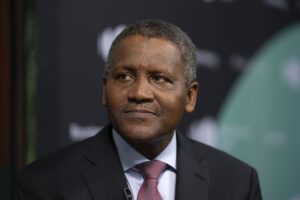Foreign reserves drop by $2.3bn in H1 — CBN
By Aanuoluwapo Olaleye, Abuja
The Central Bank of Nigeria (CBN) has disclosed that Nigeria’s foreign reserves dropped by $2.3billion in first half of 2021.
Nigerian NewsDirect gathered that the foreign exchange buffer opened 2021 at $35.65billion to close June 30, 2021 at $33.32billion.
Our correspondent gathered that the foreign reserves in the first three months of 2021 dropped by $827.3million to $34.82billion as at March 31, and also dropped by $1.52billion in the second three months of 2021.
Analysts attributed the downward in the foreign reserves to the recent intervention by the apex bank amid upsurge in global crude oil prices.
They expressed further that the liquidity in the economy is contributing to the pressures in the foreign exchange market as rational economic agents flee to safer currency amid low returns on fixed income assets and rising inflation rate.
In March, the reserves had lost $178million after dropping from $34.99billon as of the end of March 1 to $34.82billion as of the end of March 31.
In February, the reserves dropped by $1.1billion, falling from $36.19billion as of February 1 to $35.09billion on February 26.
The CBN, in its January economic report, said, “As a consequence of the lower foreign exchange receipts, the official external reserves declined.
“External reserves stood at $35.44bn at end-January 2021, a decrease of 2.8 per cent and 3.5 per cent from $36.46billion in December 2020 and $36.73billion in January 2020.
“At that level, the external reserves position could cover 6.1 months of import for goods and services and 8.2 months of import for goods only.”
External reserves also declined from $36.6 billion in December 2020 to $34.46 billion in February 2021.
The CBN spent over $1.3billion to defend the naira between January and February 2021. It is early in the day to know the extent to which the new policy of CBN to boost remittances will impact on pressures in the foreign exchange market.
The CBN at the end of March Monetary Policy Meeting (MPC) stated that, “Available data and forecasts for key macroeconomic variables for the Nigerian economy suggest further rebound in output growth for the rest of 2021.
“This is predicated on the sustained, as well as additional interventions by the monetary and fiscal authorities to keep up the recovery momentum in the economy, favourable upsurge in crude oil prices, foreign exchange market stability and successful deployment of the new COVID-19 vaccines that could further stimulate economic activities and ultimately boost output growth.
“Given the potential rebound in output growth, bolstered by the resumption of economic activities post COVID-19, inflationary pressure in the economy is projected to moderate in short-to-medium term.
“The underlying risks of the efficacy of the COVID-19 vaccines against known and newly emerging strains of the virus, the uncertainty that the existing vaccines could lead to herd immunity and unequal access to COVID-19 vaccine, however, are some of the headwinds that could undermine this forecast.”




